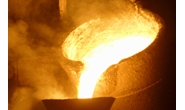Government/Policy

May 19, 2019
Trump Trims Turkey Tariffs Back to 25 Percent
Written by Tim Triplett
The Trump administration has cut the U.S. tariffs on steel imports from Turkey in half, trimming them from 50 percent back to 25 percent where they were originally set last August.
In a statement on Friday, the White House noted that imports of steel into the U.S. declined by 12 percent overall last year, and were down 48 percent from Turkey. “Given these improvements, I have determined that it is necessary and appropriate to remove the higher tariff on steel imports from Turkey,” the president said, instead imposing a 25 percent rate “commensurate with the tariff imposed on such articles imported from most countries.” The new, lower rate is to take effect at 12:01 a.m. ET on May 21.
The tariff reduction increases the economic viability of Turkish steel exports into the U.S., said analyst Andreas Bokkenheuser of UBS Global Research in a May 17 post. Cutting the tariff in half “is likely to increase steel supply into the U.S. and put downward pressure on U.S. steel prices given the flattish demand environment.”
Impact on Scrap Market
The likely increase in Turkish steel output into the U.S. should also increase Turkish scrap imports from the U.S. and, in turn, U.S. scrap prices. Higher scrap prices may offset the pressure on finished steel prices to some degree.
“It’s already clear that the reduced tariff on imported Turkish steel is bullish. Scrap futures are up $10 as of this writing,” said a Steel Market Update source on Friday. “U.S. exporters have withdrawn outstanding offers to Turkish consumers with the implication that new offers will be at higher levels. Very basically, improved demand for Turkish steel equals improved demand for raw materials such as scrap.
“Prices for HMS/shredded to Turkey are now at $305/$310 MT CFR,” he continued. “The mills there now have the economics to access the U.S. market and consequently will buy more scrap. However, it will not be cheap. At the aforementioned offer prices, the U.S. East Coast export yards will enjoy a $10-15 MT advantage by supplying Turkey rather than shipping their material westward into the Ohio Valley markets where the rail freights are $30-35/GT.”
The Trump administration’s decision on Friday to remove the Section 232 tariffs on steel from Mexico and Canada has implications for scrap prices as well, added a dealer in the Northeast. “Their steelmaking will increase and their demand for scrap should also increase. In Canada, this means less scrap coming into the northern markets, especially busheling. In Mexico, this means more scrap coming from Texas via rail and more cargoes from the U.S. exporters. I have to believe that May is the bottom of the U.S. scrap market after these events.”







